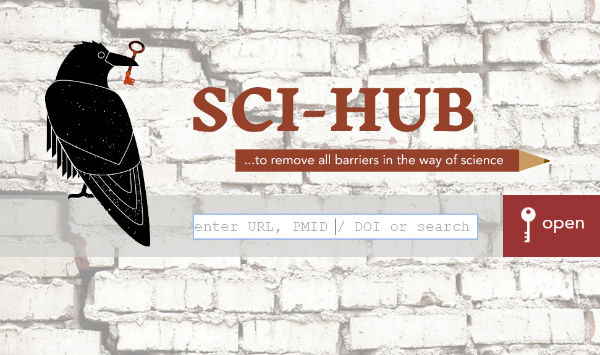Sci-Hub helps scientific "pirates" download 200,000 scientific articles a day for free

For the past few months, the Sci-Hub resource has become a center for academic copyright debate in science. Despite the fact that the largest publishers of scientific literature are trying to sue the site, the site continues to work, and now its popularity is at its maximum - never before have Sci-Hub had so many visitors. On the day of the resource helps to download about 200 thousand scientific articles.
“Information must be free” is a well-known appeal, often used in copyright debates. In the world of science, this statement is very important - after all, information and knowledge is the cornerstone of the scientific sphere. Nevertheless, many scientists are forced to spend huge amounts of money on obtaining information, buying access to scientific materials, or doing without the results of modern research.
Resources like Sci-Hub come to the rescue; in the scientific world this site is a lifeline for a large number of researchers. Naturally, the publishers of scientific literature are extremely unhappy that the articles, which are usually offered for substantial sums, can be obtained for free by someone. One of the publishers, Elsevier, sued Sci-Hub in a New York court, accusing the site administration of systematic copyright infringement.
')
But instead of blocking the work of the resource, representatives of Elsevier, unwittingly, provoked the emergence of a very active discussion about the "paywalls" in science. A "Streisand effect" significantly increased the user base.
Alexandra Elbakyan, the founder of Sci-Hub ( here you can find an interview with Alexandra ), claims that about 70 thousand users visit the site every day who download more than 217 thousand articles without paying a cent. The most active are users from India, China, Iran, the USA and Russia (Russian scientists have problems with paid access to foreign materials, the reason is the fall of the ruble against the dollar).
The site is now supported by many famous scientists, both in words and with the help of charitable contributions. Elbakyan believes that the resource helps millions of not very wealthy and not very famous scientists to conduct research using materials provided free of charge by the site.
As for Elsevier, this publisher may already regret a lawsuit against Sci-Hub. By the way, Elbakyan received a preliminary injunction to manage the site - the solution is not the most effective. In this case, the resource can easily use different domain names, if this is necessary.
Well, and the Sci-Hub itself continues to gain user base, the number of visitors is increasing. There is an increasingly active discussion in the scientific world about the right of a scientist to free access to information.
Source: https://habr.com/ru/post/371863/
All Articles